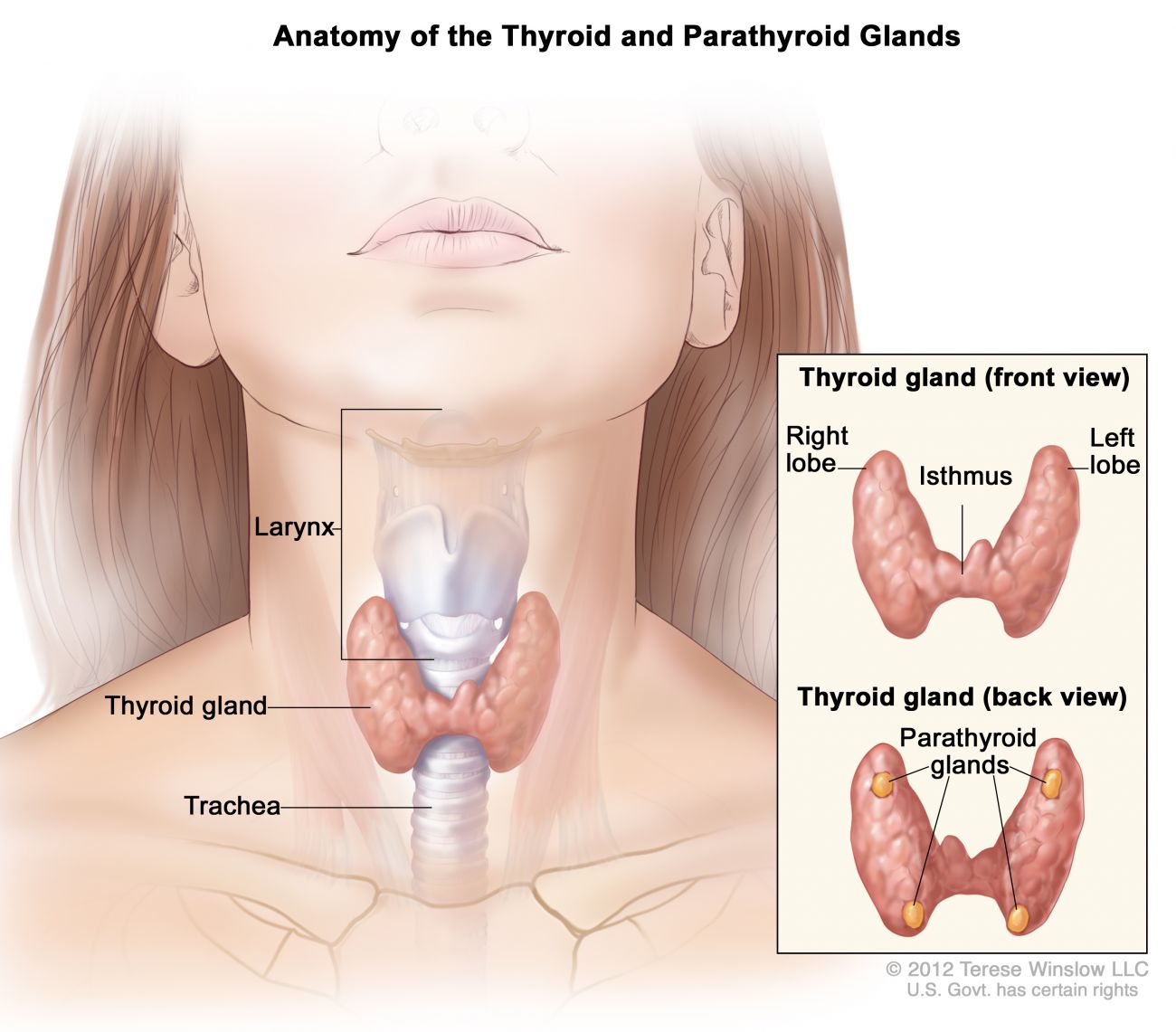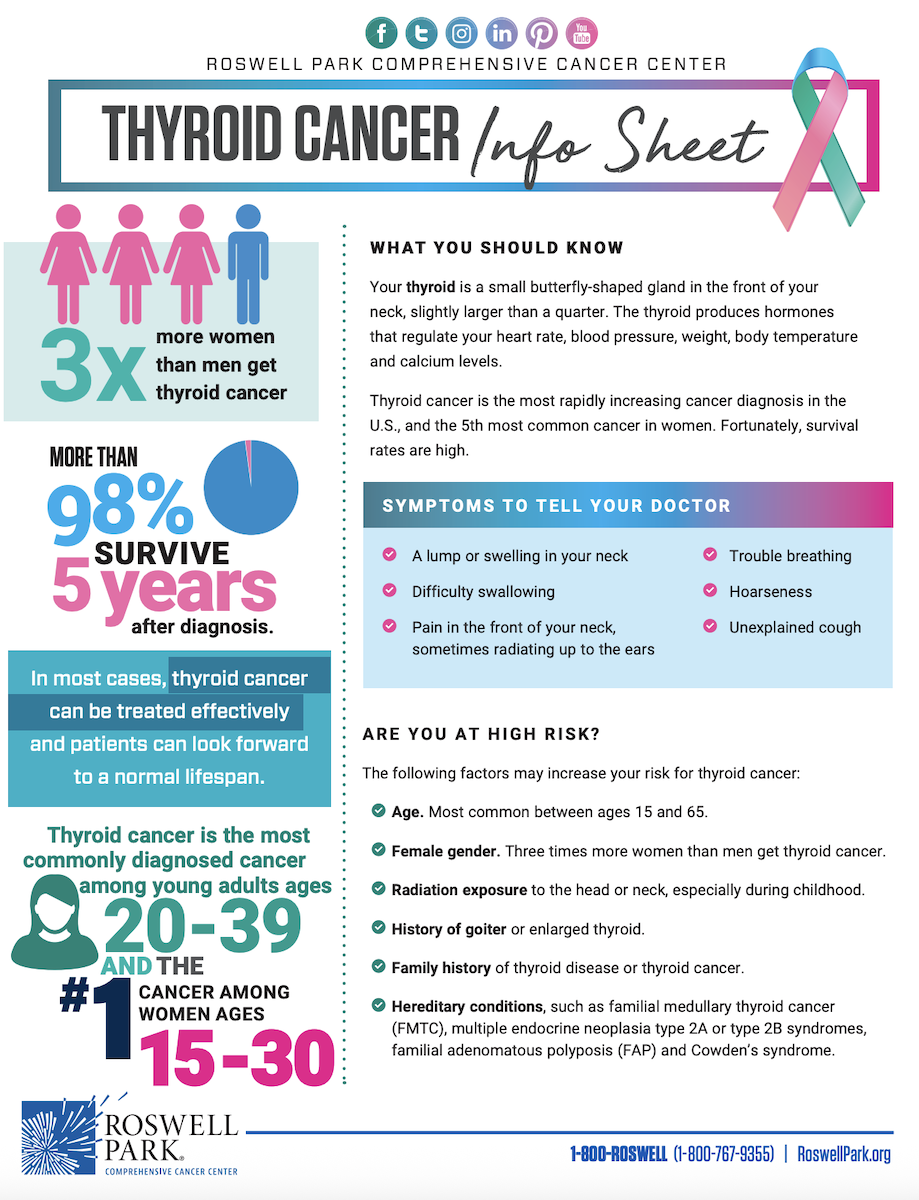Your thyroid gland
The butterfly-shaped thyroid gland sits at the front of your throat, underneath your “voice box” or “Adam’s apple.” It is part of the endocrine system — the glands in your body that manufacture hormones.
Your thyroid uses the iodine in your diet to produce thyroid hormones, which control your energy levels, blood pressure, body temperature and heart rate, and how your body uses other types of hormones and vitamins. The thyroid gland plays a key role in the growth and development of children.
Thyroid cancer is relatively uncommon, accounting for only 1% of all types of diagnosed cancers. It occurs in people of all ages. In most cases, it can be treated effectively and patients can look forward to a normal lifespan.
Types of thyroid cancer
Several different types of thyroid cancer can develop in the thyroid gland, but the majority of cases are one of these four main types:
- Papillary thyroid cancer (about 86% of cases) begins in the epithelial, or follicular cells of the thyroid, which produce the thyroid hormones. Papillary thyroid cancer has a cure rate of over 90%.
- Follicular thyroid carcinoma (about 9% of cases) starts in thyroid nodules (clumps of cells in the thyroid) and grows slowly. It can usually be treated effectively if it’s caught early.
- Medullary thyroid cancer, or MTC (about 2% of cases) begins in the “C cells” of the thyroid, which control the body’s production of calcitonin, a hormone that lowers the level of calcium in the blood. It’s especially important to catch medullary thyroid cancer early, because it can spread quickly to the lymph nodes and other organs.
- Anaplastic thyroid cancer (about 1% of cases) usually begins in nodules (clumps of cells) that were in the thyroid for a long time before becoming cancerous. This type of thyroid cancer is very aggressive and spreads quickly.

